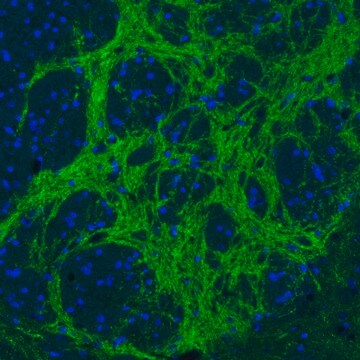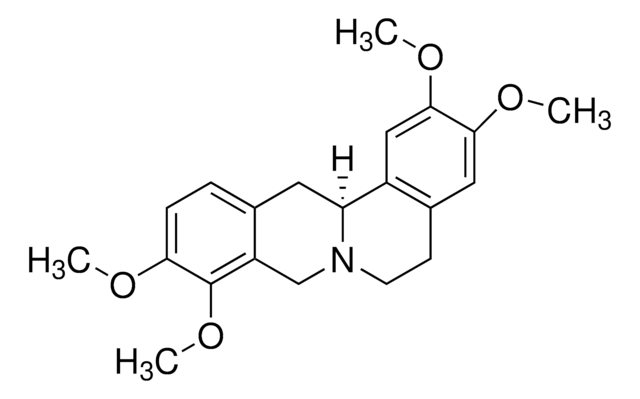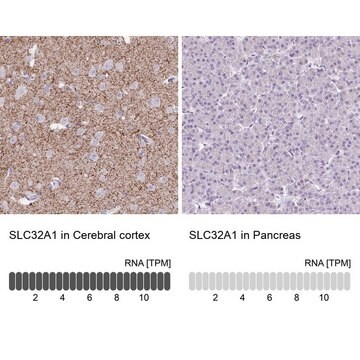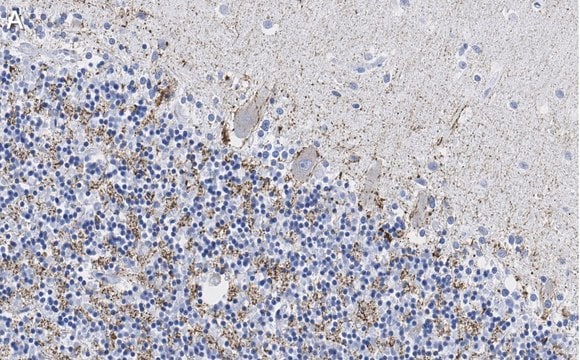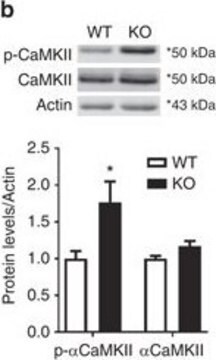AB5062P
Anti-Vesicular GABA Transporter (VGAT) Antibody
Chemicon®, from rabbit
Synonym(s):
Vesicular Inhibitory Amino Acid Transporter
About This Item
Recommended Products
biological source
rabbit
Quality Level
antibody form
affinity isolated antibody
antibody product type
primary antibodies
clone
polyclonal
purified by
affinity chromatography
species reactivity
mouse, monkey, human, rat
manufacturer/tradename
Chemicon®
technique(s)
ELISA: suitable
immunofluorescence: suitable
immunohistochemistry: suitable
western blot: suitable
NCBI accession no.
UniProt accession no.
shipped in
dry ice
target post-translational modification
unmodified
Gene Information
human ... SLC32A1(140679)
General description
Specificity
Immunogen
Application
2-20 µg/mL of a previous lot was used on paraformaldehyde fixed sections.
ELISA:
1:10,000 – 1:100,000 dilution of a previous lot was used on ELISA, using 50-100 ng of control peptide (Cat. No. AG379) per well.
Western blot:
1-10 µg/mL (Chemiluminescence technique) The expected molecular weight is approximately 55-60 kDa.
Optimal working dilutions must be determined by the end user.
Quality
Western Blot Analysis:
1:500 dilution of this antibody detected Vesicular GABA Transporter on 10μg of rat retina lysates.
Target description
Physical form
Analysis Note
Brain tissue, rat retina lysate
Other Notes
Legal Information
Not finding the right product?
Try our Product Selector Tool.
recommended
Storage Class Code
12 - Non Combustible Liquids
WGK
WGK 2
Flash Point(F)
Not applicable
Flash Point(C)
Not applicable
Certificates of Analysis (COA)
Search for Certificates of Analysis (COA) by entering the products Lot/Batch Number. Lot and Batch Numbers can be found on a product’s label following the words ‘Lot’ or ‘Batch’.
Already Own This Product?
Find documentation for the products that you have recently purchased in the Document Library.
Our team of scientists has experience in all areas of research including Life Science, Material Science, Chemical Synthesis, Chromatography, Analytical and many others.
Contact Technical Service